Welcome to part two of our realities of family travel in China blog post! In part one we talked mostly about the mainland Chinese and what they are like in 2024. Now, in part two, we shift our focus to several practical aspects that shape the experience of traveling in China. From the China’s cashless payment system to the challenges of accessing Western websites, domestic travel between cities, what local Chinese hotels are like and pollution, we uncover the multifaceted realities of family travel in China in 2024.
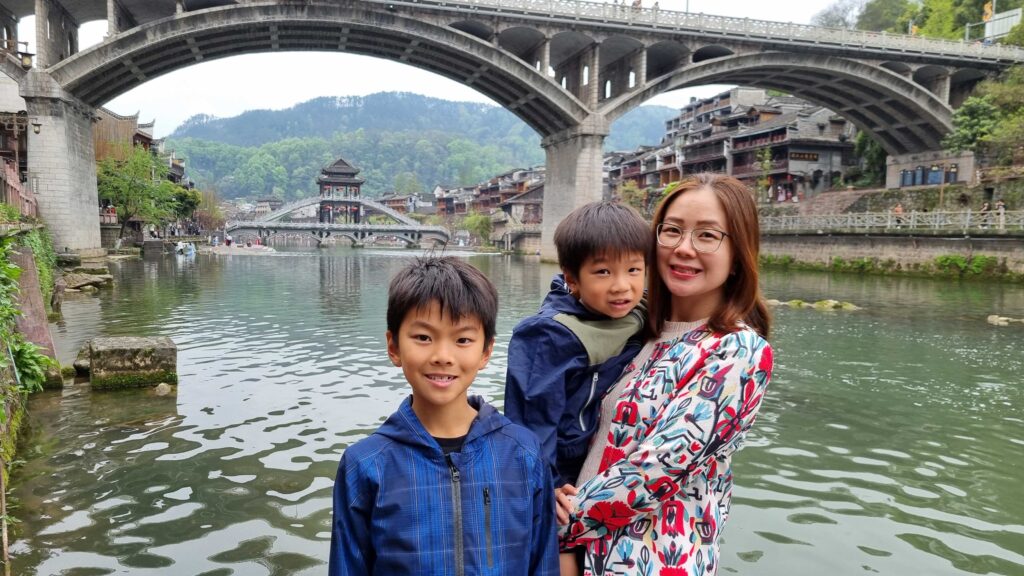
Join us as we explore more into realities of the Chinese travel experience.
In reality cash & foreign credit card is hardly used in China
In the age of Alipay and WeChat Pay, cash is fast becoming a relic of the past. From street vendors to high-end boutiques, QR codes reign supreme, revolutionizing the way transactions are conducted.
In big cities like Shanghai credit cards like Mastercard and Visas are still widely accepted.
In smaller cities, Alipay and WeChat Pay is the go. Before arriving in China:
- We had to download these 2 apps and go through the verification process using our passports.
- Then we linked our Australian bank cards (our Mastercards) resulting in a unique QR code for each bank card we linked it to.
Tara’s (using iPhone) Alipay refused to work completely for the entire trip but luckily her WeChat Pay worked. BUT for purchases over $10, our Australian bank, had to send a 6 digit verification SMS code before approving the transaction. Luckily, we travelled with mobile phone roaming. But this made paying became a long process EVERY SINGLE time! Especially with areas with poor mobile reception.
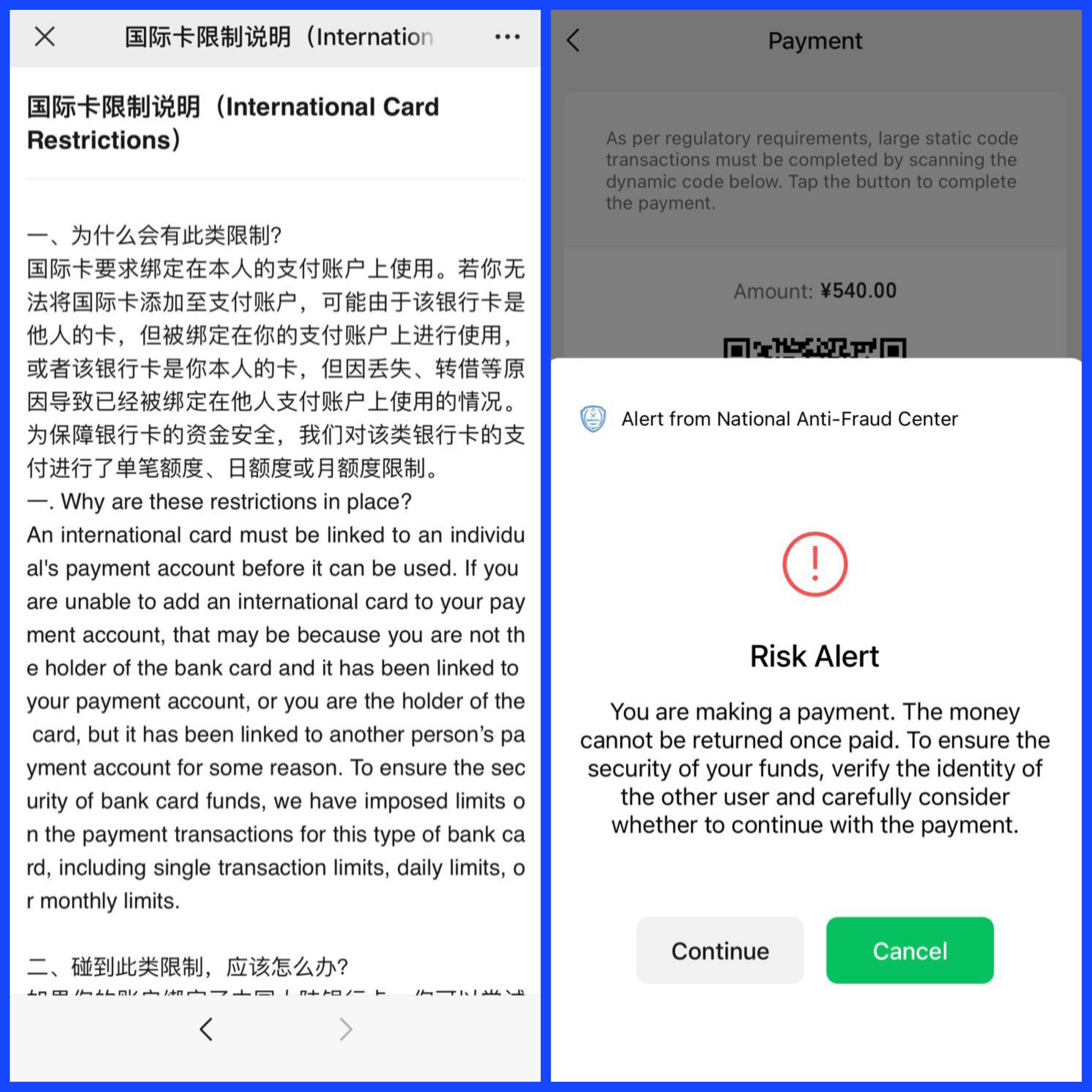
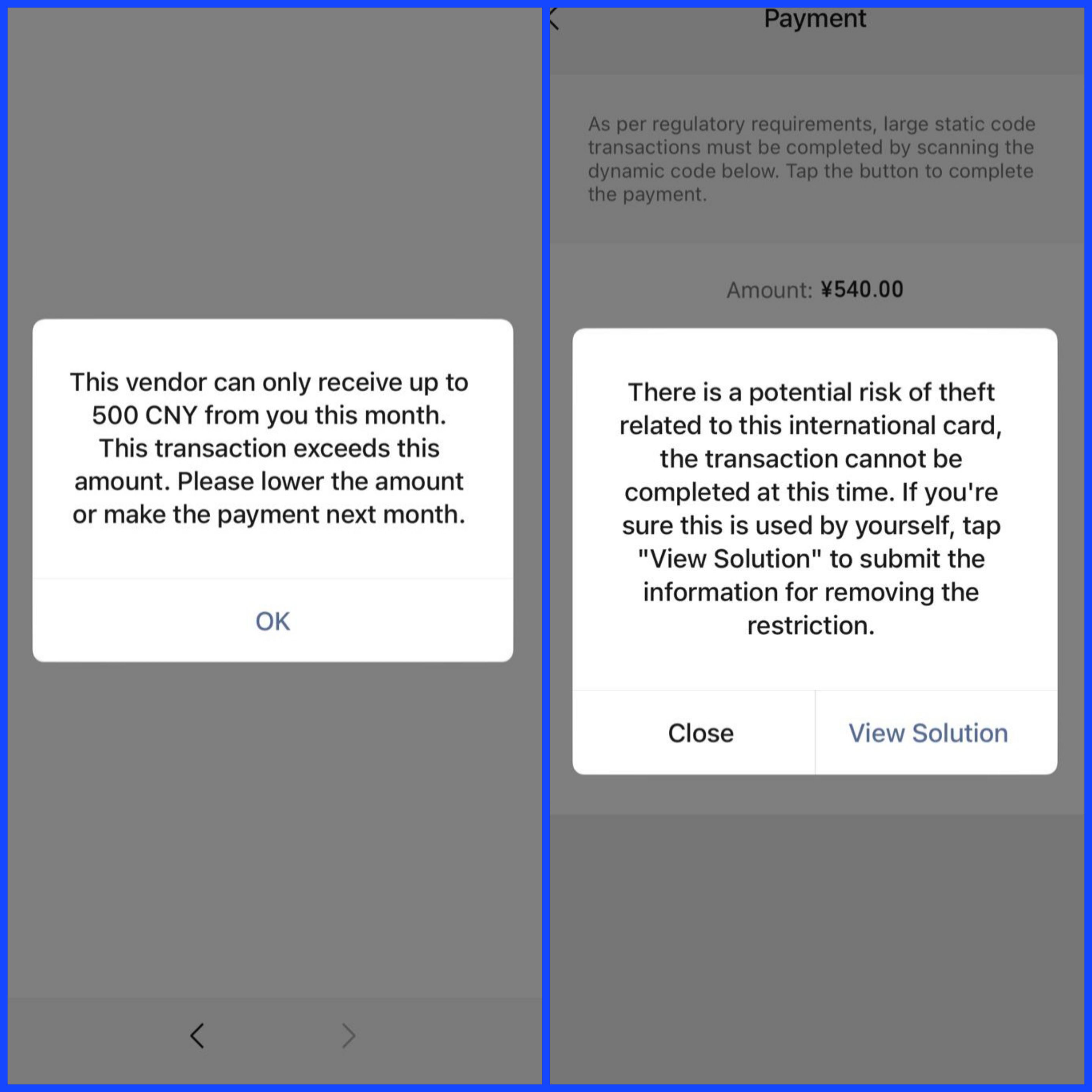
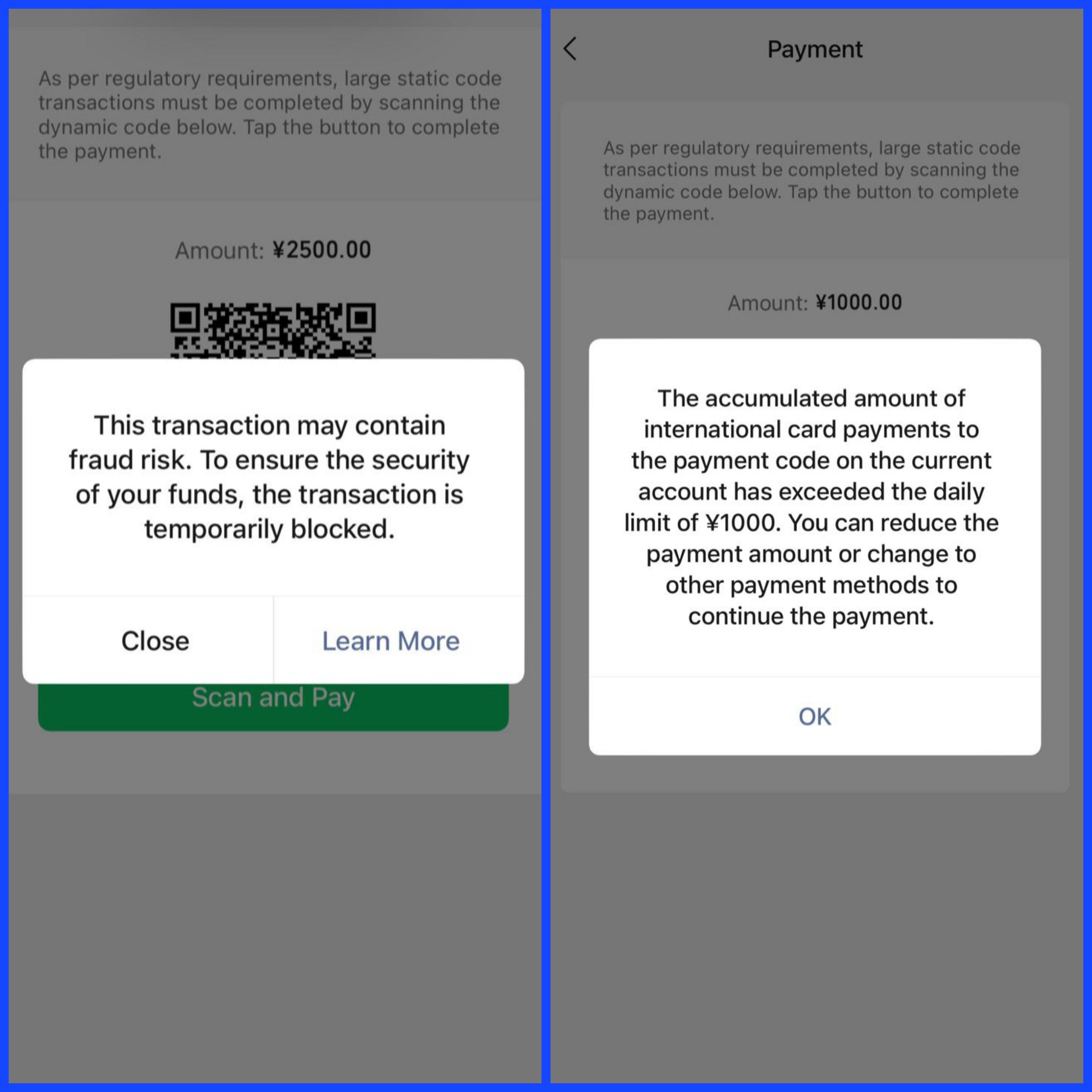
Alfred is the opposite. His (Samsung Galaxy) WeChat refused to work completely for the entire trip but luckily his Alipay worked. As we understand, Alipay has two types of accounts: business and private. Alfred’s Alipay account impose a daily payment limit of just 500 RMB for payments to private accounts. So, making payments to someone like our local guide or eating at smaller local restaurants can be very annoying!
BUT Alipay does have a much better customer service than WeChat Pay. We can dial the help line, talk to an English speaking operator and get our issues resolved relatively quickly. Blocked transactions can be sorted by uploading photo of your passport and physical bank card via the Alipay app. The payment can be allowed to go through after their security checks is complete (takes about one hour). BUT you must do this EVERY SINGLE time! Annoying!
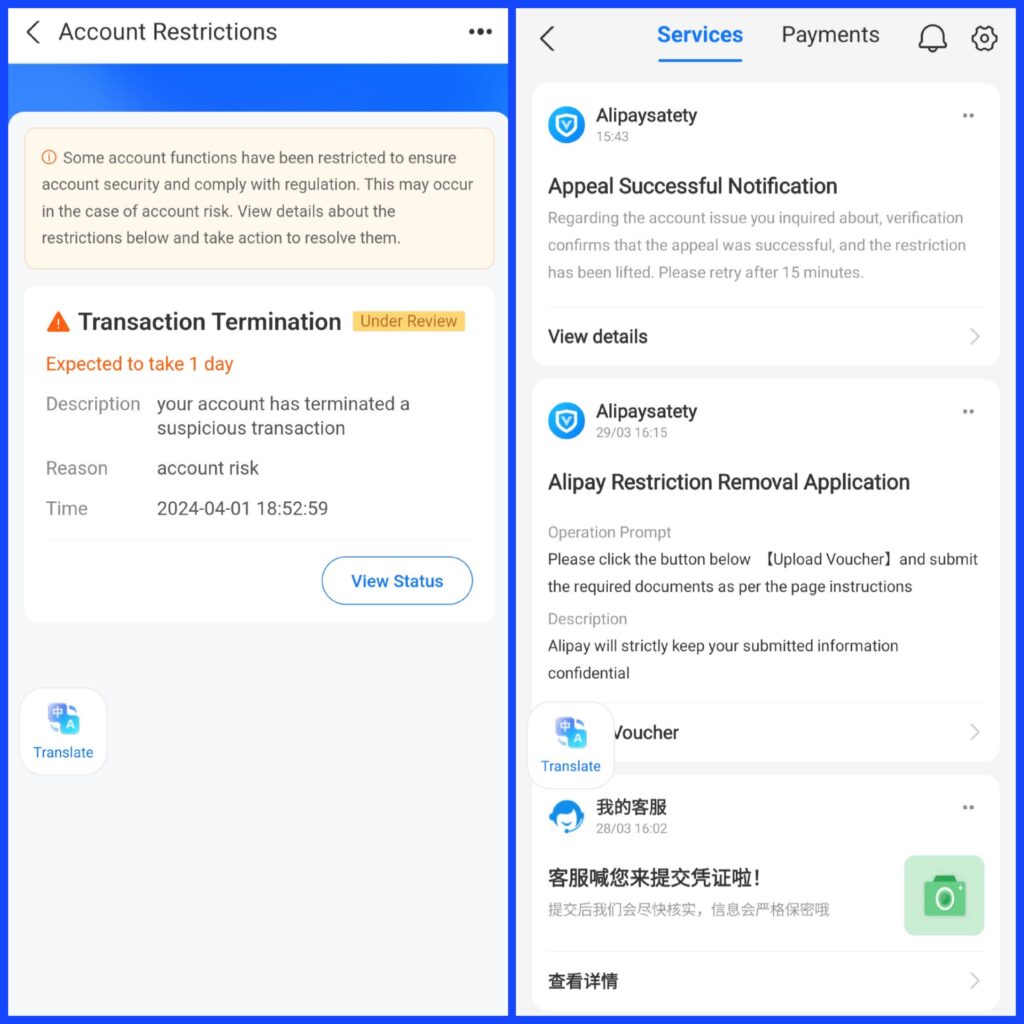
So this whole China cashless payment thing proved to be a double-edged sword. In the end we still took some cash out as backup.
Note:
- AliPay and WeChat Pay charges about 3% for every transaction. Using cash or credit card (if acceptable) can be cheaper.
- Alipay app is awesome. It has “mini apps” including: Didi for ride sharing/taxi, Trip.com for hotel bookings, Railroad 12306 for train ticket bookings and translation app.. plus many more. It’s a one stop app!
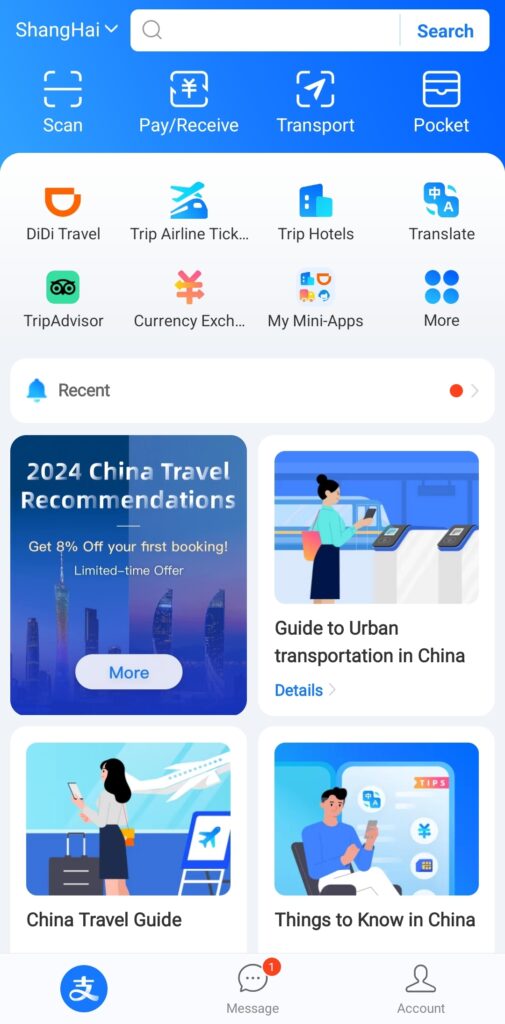
In reality accessing Google, Facebook and YouTube in China is not easy…
.. unless you use global roaming. The “Great firewall of China” blocks Google, YouTube, Facebook and Instagram.
We both need to be contactable for work during trips, so Vodafone global roaming ($5/day) has always been our go to telco. Roaming enabled us to bypass all websites without problems! Yay!
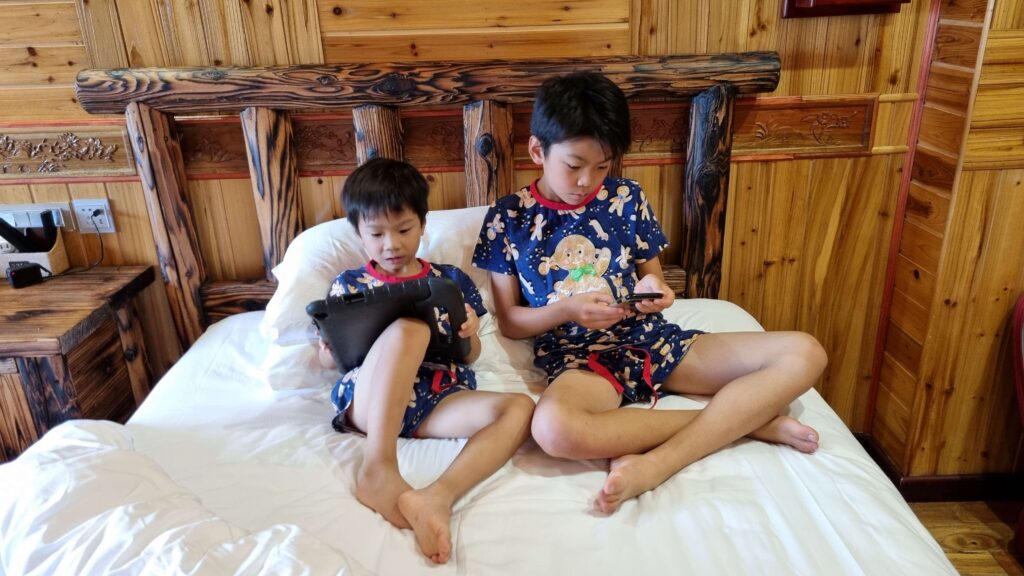
Before the trip we did do a bit of research as to what VPN service we may need to bypass the China firewall. We came across Windscribe (free provider up to 10GB) which we find to work intermittently during the trip but not 100% reliable.
Another provider which had good reviews is LetsVPN. We didn’t end up subscribing to LetsVPN as our roaming data was more than sufficient.
Note: Avoid Express VPN! It dominates Google advertising and pay YouTube channels for coverage but their reviews are horrible.
In reality travelling domestically in China is much easier
China has been busy improving its own shinkansen (almost exact copy of the Japanese ones) high speed train connection between major cities. In fact, we arrived in Guilin from Hong Kong by using the high-speed train. Our 4 hours second-class journey were surprisingly clean and spacious. Even the toilets were clean! Foods and drinks? There were plenty to choose from the cafeteria.
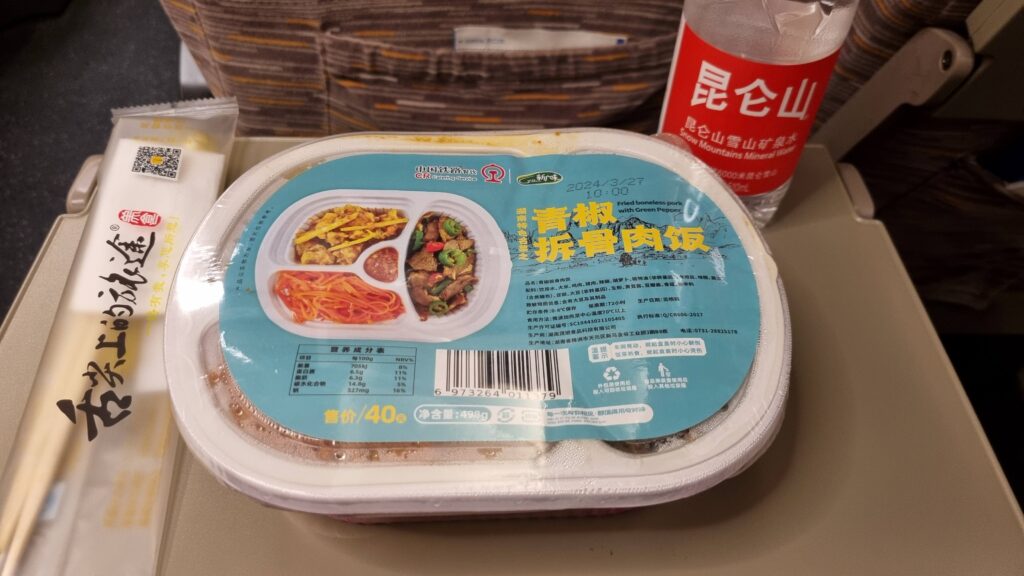
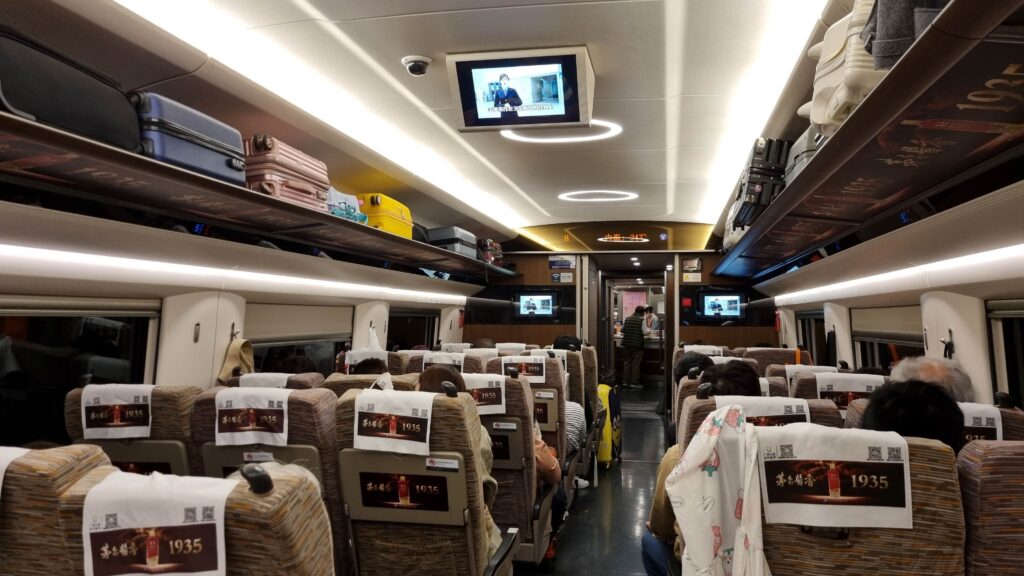
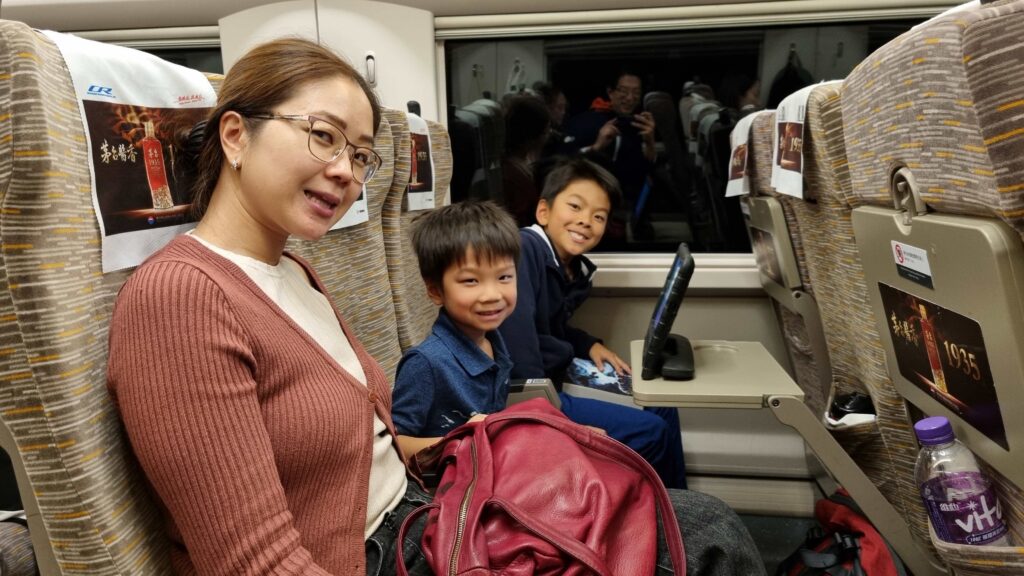
Tickets can bought via the Railroad 12306 app but we had trouble accessing it from Australia. So we used China Highlights Travel service to buy them on our behalf. Tickets are released 2 weeks in advance, and during higher season and weekends it gets booked up quickly!
If you prefer to fly, there are heaps of airlines to choose from.
In reality you have to bring your passport everywhere!
Even in Disneyland! To stop among other things, ticket scalping, many tourist attractions have facial identification technology at the entry gate. Which is pretty cool and organised.
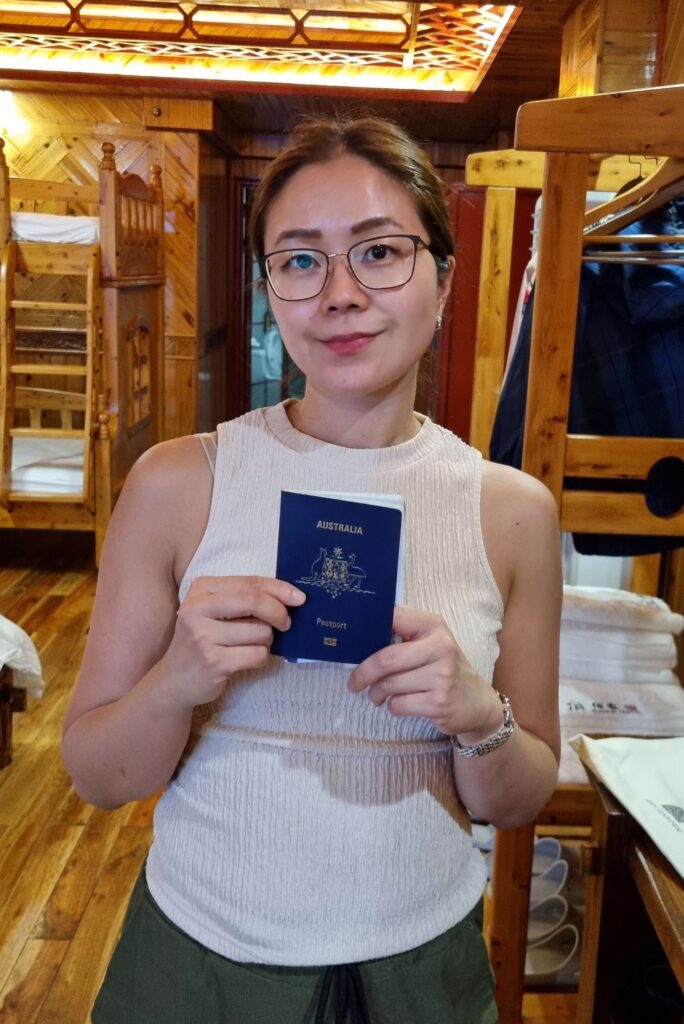
So every time you scan your entry ticket through the turn style gate, there will be a small screen showing the photo taken when you bought tickets and in turn this is matched to your identity document, which for foreigners unfortunately means the passport. For our family, this mean bringing 4 passports pretty much everyday for two weeks, which is very inconvenient.
We don’t even want to know what happens if we loose the passports!
In reality Chinese hotels are good value
For this trip, as always, we picked 4-star hotels and guest houses with good ratings. With any destination, reading reviews and seeing “real” photos before making your selection is important. Locally operated Chinese hotels are generally spacious and reasonably priced.
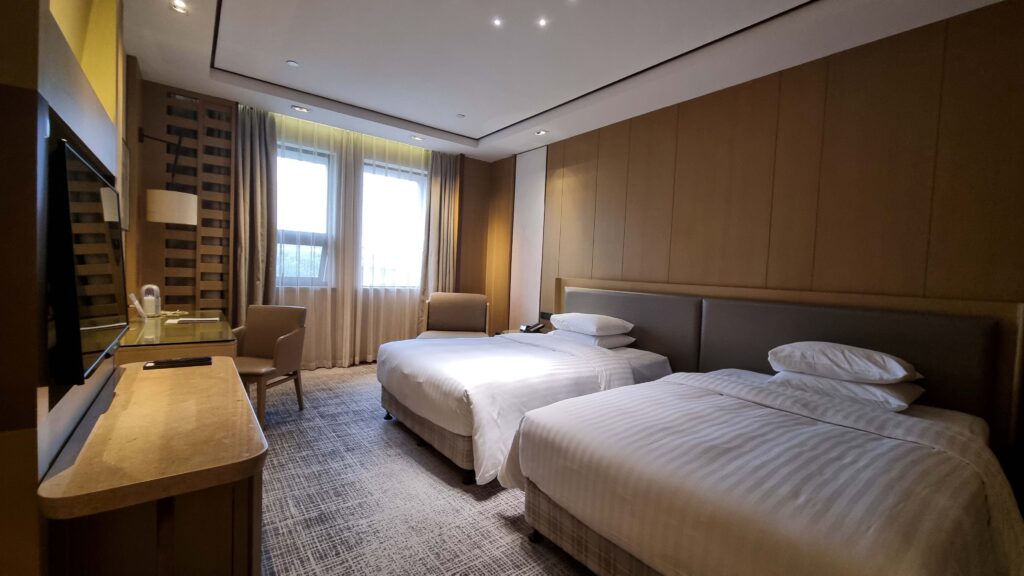
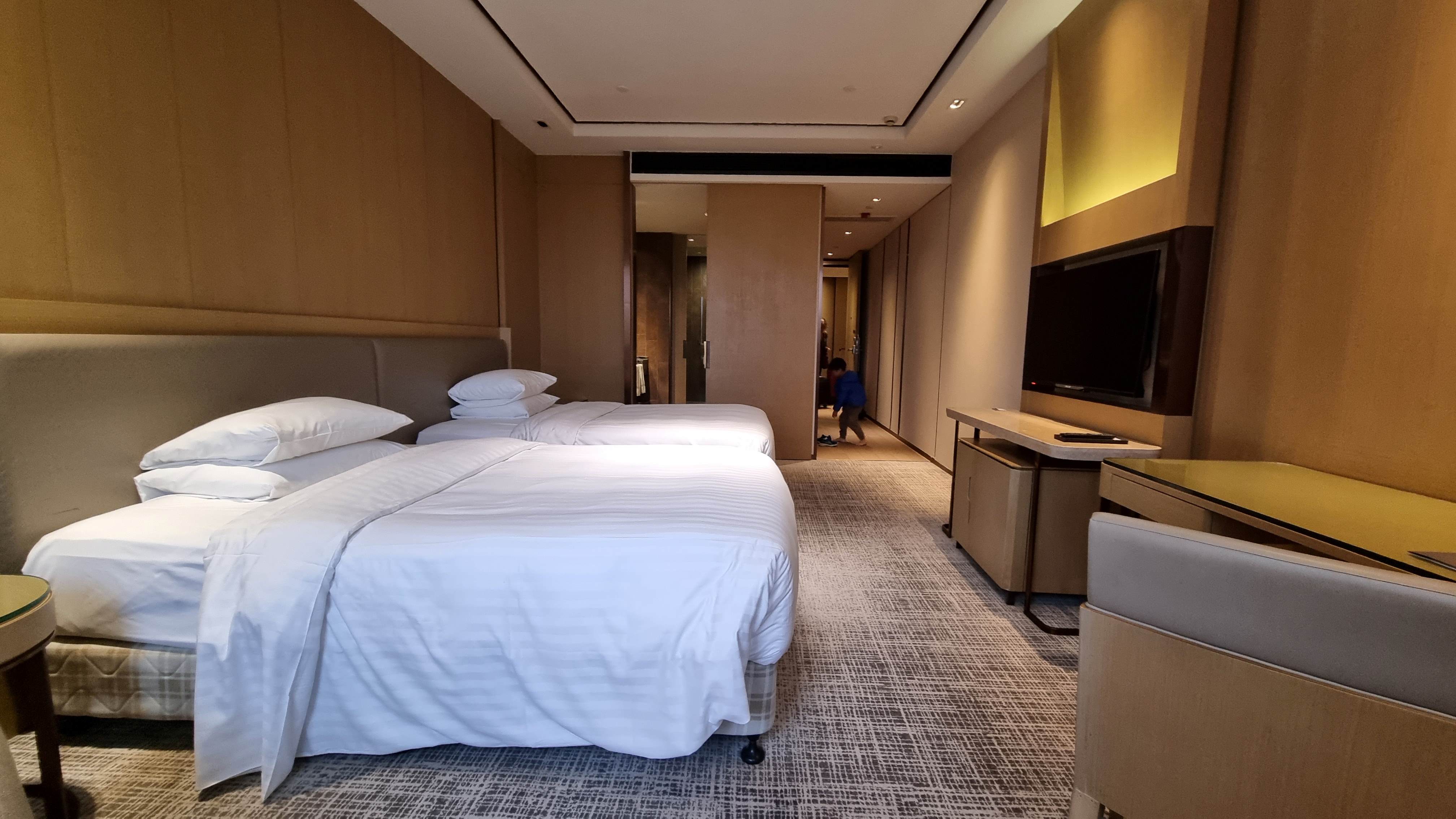
Note: Not all hotels in China can accept foreigners. Chinese hotel operators are required to meet additional requirements if they want to welcome foreign guests. But if you book on platforms such as Booking.com and Agoda, they are guaranteed to accept foreigners.
In reality China is: CLEAN
This seems to be the MOST common misconception. In the 2 weeks we were in China, the streets were clean. Rubbish bins can be easily spotted and cleaners were everywhere! We feel Indonesia is A LOT dirtier than China.
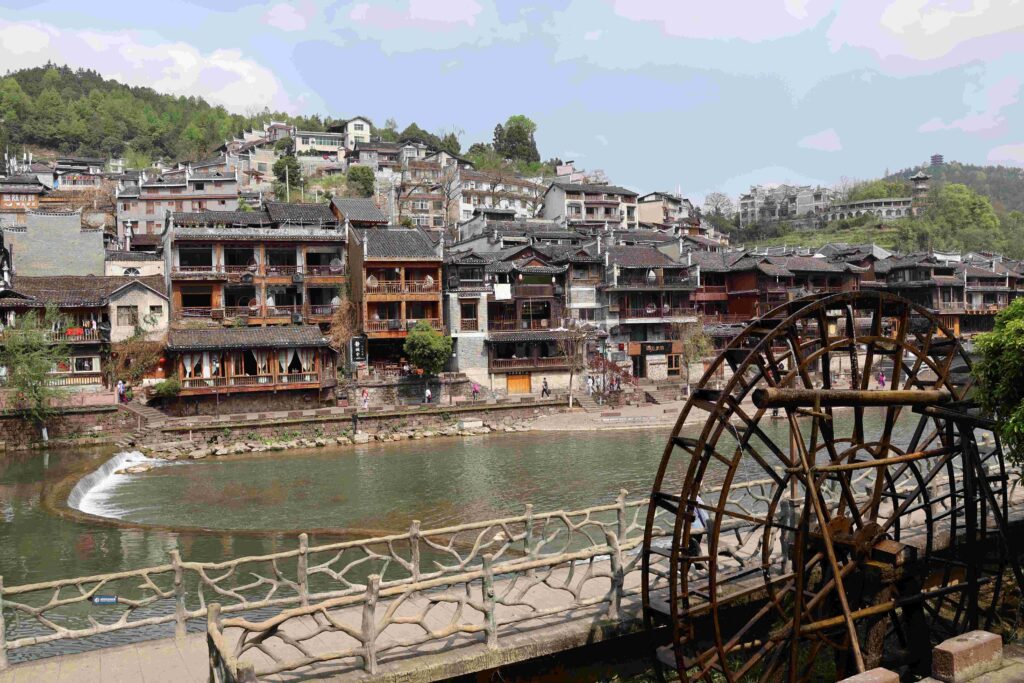
In reality China is (surprisingly): GREEN-er
Western China’s landscape is amazing! Unlike many other Asian countries, we are impressed that tourism in China has been better managed without ruining the natural beauty.
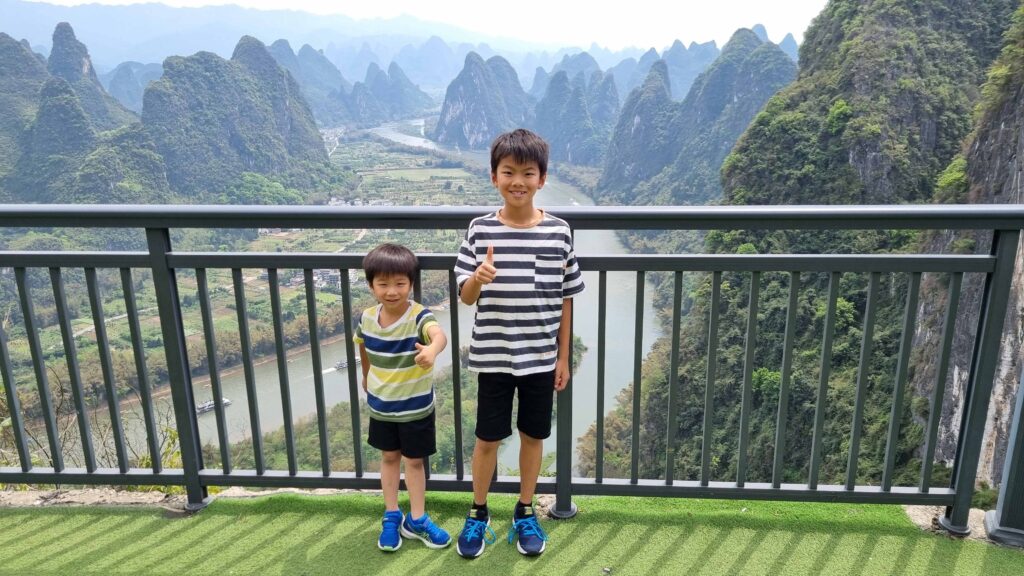
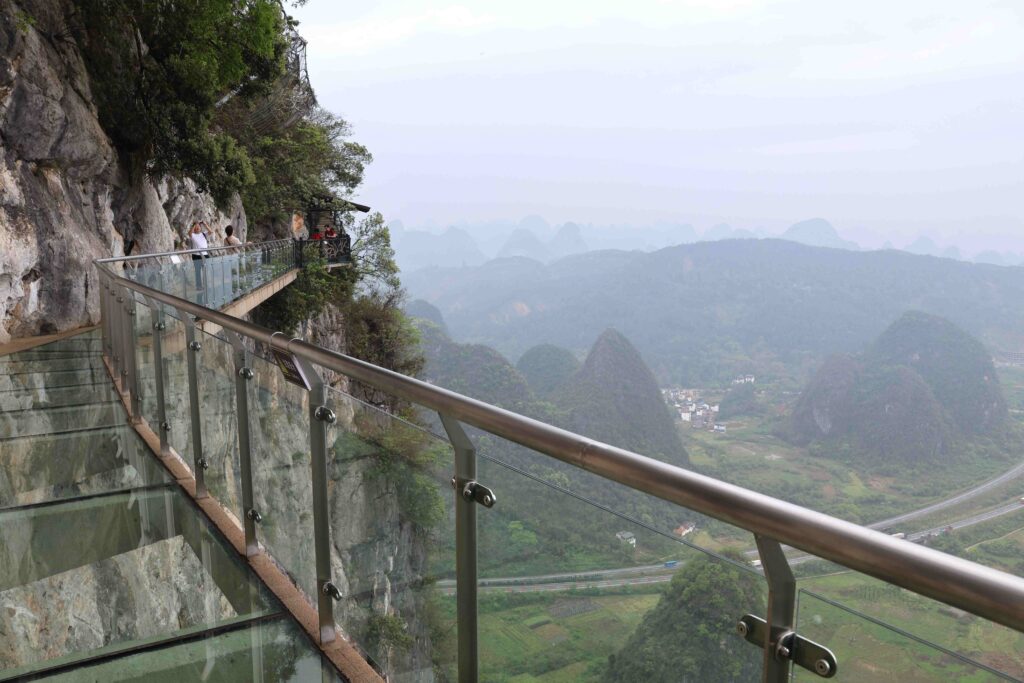
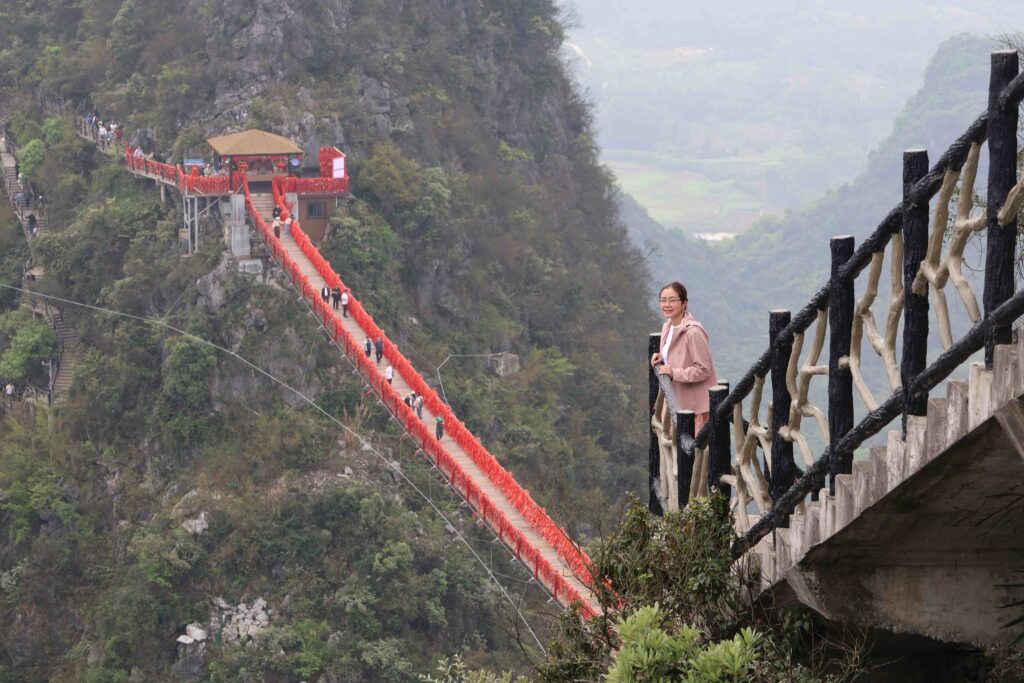
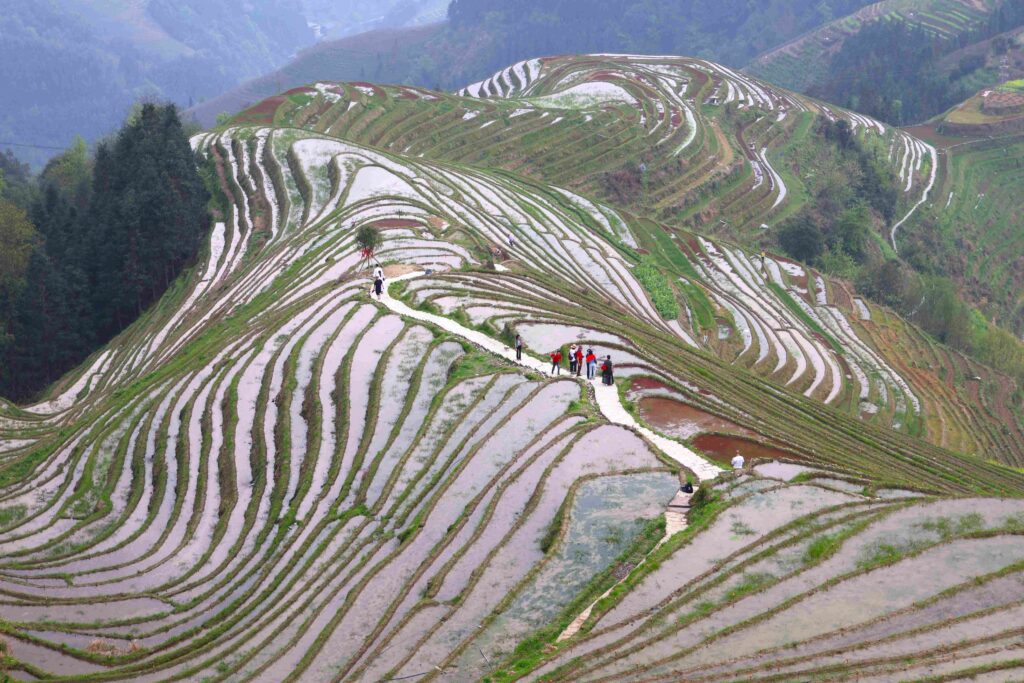
Since our last visit in 2016, there seem to be a big shift towards electric vehicles. Chinese cars dominate the roads and motorbikes in smaller cities are now mostly electric. This makes strolling around a much more pleasant experience.
In reality China is safe
We felt 100% safe in China. CCTV cameras and policeman patrols the busy streets.
In reality the Chinese are still very loud
Even after 3 generations our Indonesian Chinese friends and relatives are just as loud as mainland Chinese! Whether it’s dinner or family gatherings, everything is LOUD!
Maybe this one will need a few more generations to improve!
Final note: Not all provinces will be as we described in this blog, but it is time to refresh our perception about China from 20 years ago. As the world evolves, so too does China, shedding its old skin to reveal a vibrant, dynamic, and endlessly fascinating nation. It is by no means perfect. But China is evolving quickly, for the better!
For other places we have visited, checkout our website’s travel Destinations section. We buy our travel essentials online via Ebay